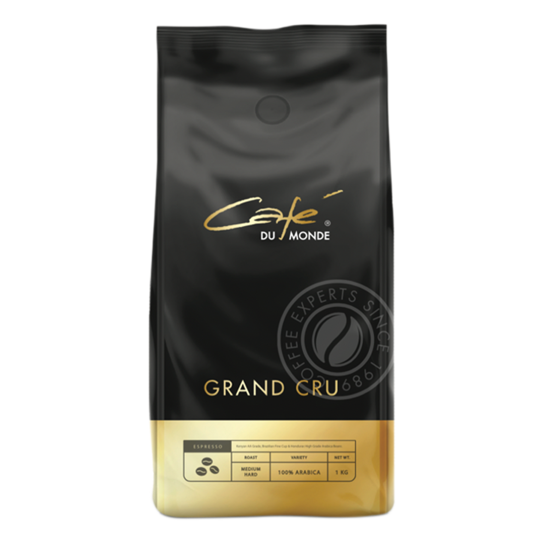
Grand Cru Espresso Beans
This is our 100% Arabica espresso coffee blend. It has the best Kenyan AA Grade beans for acidity, citrus notes and a chocolate after taste.
View
The coffee bean farming industry has been around for over 1,000 years. The earliest known coffee plants were cultivated in Ethiopia in the 9th century AD and since then, coffee bean farming has been an honoured profession and skill.
At Cafe Du Monde, we appreciate the farms, the farmers and the habitats that make the coffee industry and look to support environmental practices however possible, to ensure the livelihood of the farmers, the longevity of the industry and the sustainability of the habitats.
A single bean of coffee endures an incredibly long journey before it even reaches your cup. The journey of coffee beans begins with the farmers nurturing coffee trees for roughly three to four years. After that, the journey continues with various stops before it makes it to a bag and your coffee machine.
However, are you aware that coffee production isn’t entirely eco-friendly? According to the Water Footprint Network, 140 litres of water is required for 125 millilitres of wet-processed coffee. Not to mention transportation, chemical use in some farming, and mistreatment of workers. To combat the above, sustainable coffee bean farming can aid in creating a more sustainable future for the coffee farming industry.

Shade-grown coffee is an eco-friendly farming method that promotes the preservation of forest canopies. Unlike traditional coffee plantations that clear forests to make way for sun-loving coffee plants, shade-grown coffee farms allow coffee plants to grow under the shade of existing trees. This not only protects natural habitats but also promotes biodiversity by providing a home for various bird species and other wildlife.
In addition to its environmental benefits, shade-grown coffee also produces high-quality beans. The slower growth and extended maturation period result in beans with richer flavours and lower acidity levels. This makes for a more enjoyable and complex cup of coffee. By choosing shade-grown coffee, you are helping to support sustainable farming practices and helping to mitigate deforestation. It's a win-win situation.
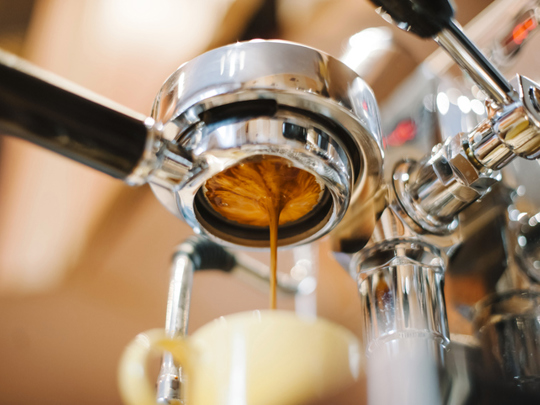
Water is essential in coffee farming, and sustainable practices aim to minimise its use and pollution. Techniques like drip irrigation and water recycling help conserve this.
Coffee plants require a significant amount of water to grow, and improper irrigation techniques can lead to water scarcity and contamination. This not only has negative implications for the environment but also affects local communities. To address this issue, sustainable coffee farmers prioritise efficient water use, implementing methods such as drip irrigation and rainwater harvesting, which minimise water waste and ensure that water is used responsibly and sustainably. Additionally, they implement water management practices that promote soil moisture retention and prevent erosion.
By supporting sustainable water use in coffee farming, you are contributing to the conservation of this precious resource and protecting the livelihoods of coffee farming communities.
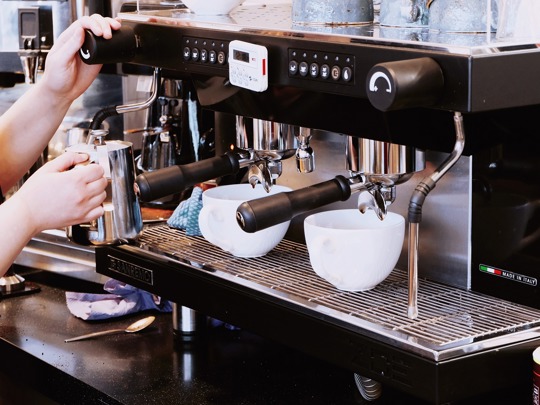
Planting more trees in coffee farming areas is a vital step towards creating a more sustainable and resilient industry. Trees provide numerous benefits to both the environment and coffee farmers themselves.
Trees play a crucial role in shade-grown coffee farming, creating a natural canopy that protects coffee plants from excessive sun exposure and extreme temperatures. This not only promotes healthy plant growth but also provides habitats for birds and other wildlife, supporting biodiversity in the area. Additionally, trees contribute to soil fertility by preventing erosion, improving water retention, and enriching the soil with organic matter. Planting more trees also has social and economic advantages for coffee farming communities. Trees can be a source of additional income through the sale of timber, fruits, or other forest products, and they contribute to the overall well-being of coffee farmers and their families by providing shade, clean air, and a more pleasant working environment.
By supporting initiatives that encourage tree planting in coffee farming areas, we can contribute to a more sustainable future. Such as supporting organisations that promote reforestation projects, participating in tree-planting campaigns, or choosing coffee brands that actively invest in agroforestry programmes.
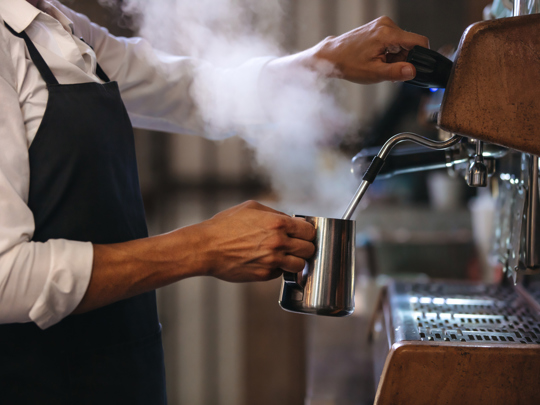
The Fair Trade certification promotes better working conditions, gender equality, and community development, improving the lives of coffee-producing communities and paying them correctly and fairly for the work they undertake.
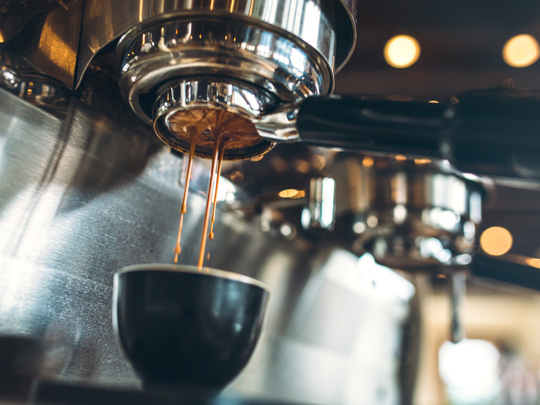
Sustainability in coffee farming also includes fair wages, safe working conditions, and the abolition of child labour. Certifications such as Rainforest Alliance and UTZ help with this, ensuring workers are supported properly and paid correctly. This can also help the farming industry to grow, allowing farmers to invest in their farms, more sustainable practices, and hire more staff.
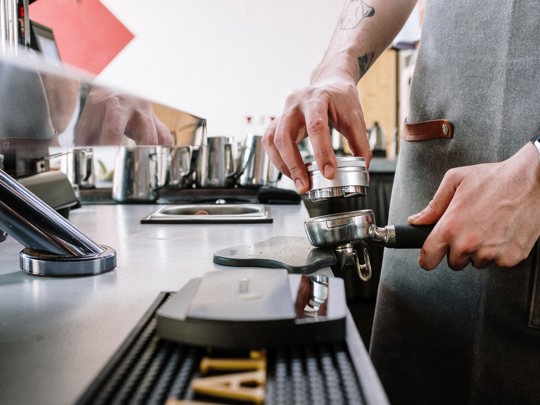
At Cafe Du Monde, sustainable farming is considered to be the future of the coffee industry. To support as best we can, we stay up to date on the relevant practices, and sustainability measures and encourage our customers to do the same. We’re aware that not everyone is aware of the practices, methods and ways of helping the coffee industry, which is why documents such as this are crucial in educating coffee lovers on ways you can help.
Every variety of coffee we sell includes transparent labelling of the ethical and environmental causes we support. From Fair Trade to the Rainforest Alliance, we support the farmers, the environment and the best practices that allow the industry to grow and evolve in the most economically and environmentally friendly ways.

This is our 100% Arabica espresso coffee blend. It has the best Kenyan AA Grade beans for acidity, citrus notes and a chocolate after taste.
View
Nutty-chocolate aromas, a hint of fruit, balanced acidity, and a smooth, full-bodied finish. Robust yet refined, this is coffee that speaks many languages—and all of them delicious.
View
A bold and full-bodied blend crafted for espresso lovers who crave depth, intensity, and crema-rich perfection.
View
This is our 100% Arabica espresso coffee blend. It has the best Kenyan AA Grade beans for acidity, citrus notes and a chocolate after taste.
£25.65
View